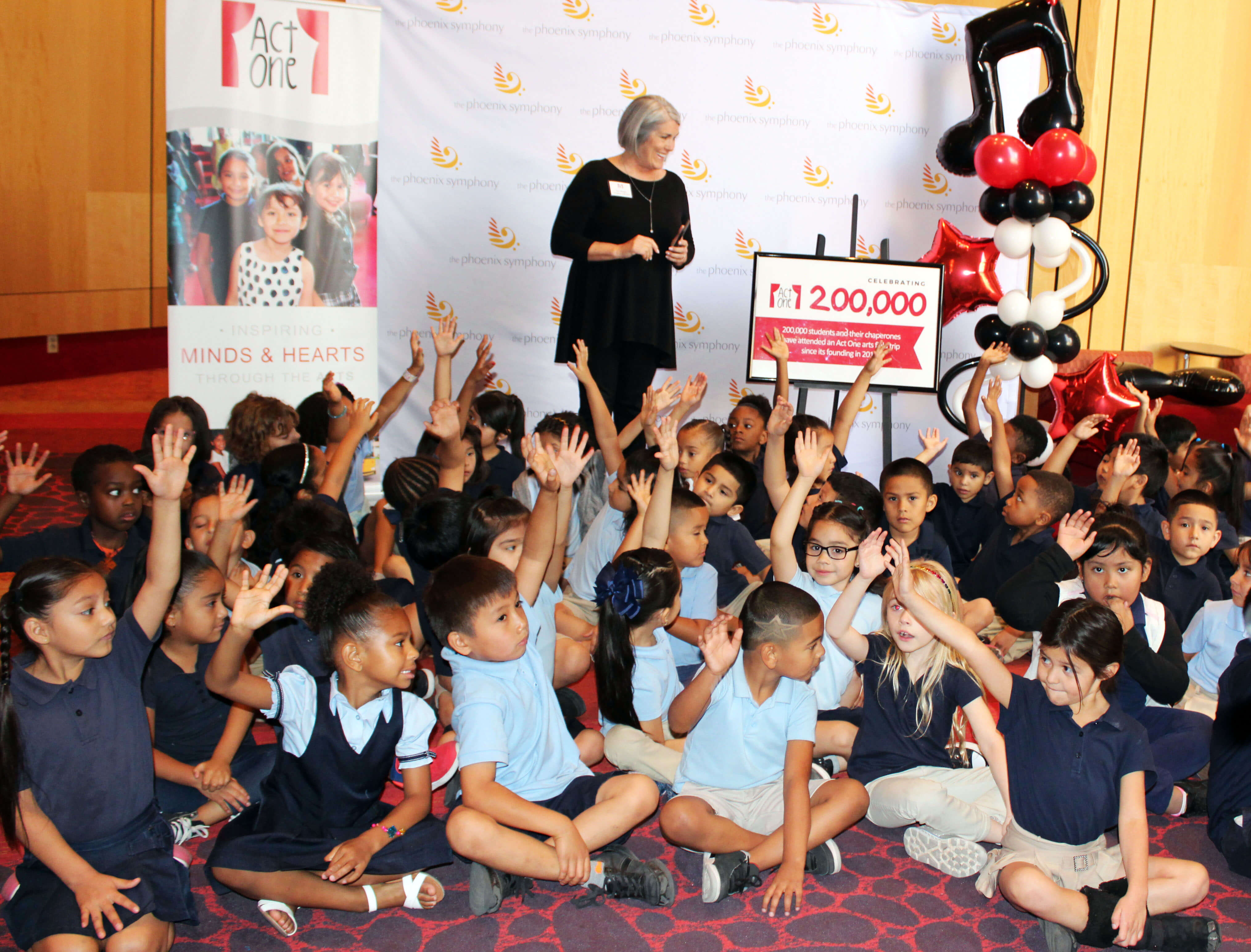Act One & Culture Pass arts programs further green awareness in Arizona
By David M. Brown
Cultural and environmental appreciation are melody and harmony, flower and stalk. Each contributes to the other, and both conduce toward a holistic appreciation of the world and life embrace. In Arizona, the Act One and Culture Pass Phoenix-based programs further these goals for young people and adults.
Culture Pass
Celebrating its 10th year serving Arizona, Culture Pass provides 500,000-plus Arizonans the opportunity to experience the arts with free passes to museums and performances in metro Phoenix, Tucson and Sedona. Since 2013, Act One has managed the program, which empowers library card holders to “check out” a Culture Pass; they then enjoy two free passes to museums, outdoor destinations and performances.
More than 60 arts and performing arts venues participate in the three Arizona counties, including Arizona Opera, Arizona Theatre Company, ASU Gammage, the Phoenix and Tucson Symphony orchestras, Desert Caballeros Western Museum, Phoenix Boys Choir, Scottsdale Museum of Contemporary Art and Southwest Shakespeare Company.
In addition, other statewide attractions invite people outside, offering experiences to enhance their appreciation of our built and natural environment. These vary by market, and include Arcosanti, Superstition Mountain Museum, Cave Creek Museum, Deer Valley Petroglyph Preserve, Pueblo Grande, Arizona-Sonora Desert Museum, Lowell Observatory, Japanese Friendship Garden, Desert Botanical Garden, Tucson Botanical Gardens, Tohono Chul Museum and the Arboretum of Flagstaff.
Act One Culture Passes are available at 51 participating metro Phoenix libraries and can be checked out by Maricopa County residents.
For Tucson-area residents with a Pima County Public Library card, Culture Passes are available at 11 libraries and at Pima Community College’s Desert Vista Campus Library. The Tucson libraries also offer passes to several of the Phoenix-area museums and attractions for those interested in a two-hour road trip.
And, the Sedona Public Library has passes for northern Arizona destinations and metro Phoenix museums/attractions.
Act One
Since its founding in 2011 by Valley arts champions Linda “Mac” and Russ Perlich, Act One provides K-12 students and teachers from Title 1 schools with little or no arts programming the opportunity to attend theater cost-free in Maricopa and Pima counties. Every year, approximately 43,000 economically challenged students attend plays, concerts, dance performances and museums; in eight years, 200,000 young people have benefited.
“Our two programs –– the Act One field trip program and Act One Culture Pass –– promote access to arts, cultural and other attractions supporting sensitivity to our environment,” says Geri Wright, Act One president and CEO. “Data about arts visitation show that people who don’t visit museums, theater, symphony opera and other venues as children are far less likely to visit them as adults.”
Getting in the Act for the Arts and Our Environment
Every day, more than 183,000 students in Arizona schools do not have arts courses in their curriculum. Nearly one-third of Arizona schools offer no arts for students, and the number of students without access to arts instruction increased 20 percent between 2015 and 2016, according to the Arizona Arts Education Data Project, July 2018, as cited by Wright.
Act One pays for tickets and busing to and from field trips.
“Helping students—many from low-income families— feel comfortable in arts, cultural and outdoor venues provides a foundation for future appreciation for protecting these assets and passing them on to the next generation for their enjoyment,” she explains.
Well-Rounded Education
For students, the arts help provide the portal to this well-rounded education.
“From the bus ride and views of the city skyline to walking into a theater or entering a museum or an arboretum or garden, the impact on students opens a world they may never have experienced nor would experience without a field trip,” Wright explains, noting that they perform better academically, too, following these visits.
As youngsters, the founding Perlichs were changed by similar experiences when they were public school students. As adults, while serving on the board of Teach for America and working with Title 1 schools Valleywide, they learned how critical the need is in these schools by seeing the arts gaps between schools in poorer areas and those in more fortunate ones.
Similarly, through the Culture Pass program, “seeking to learn about the cultures, diverse perspectives and history around us present opportunities for families and friends to set aside technology and everyday chores to create intentional connected experiences,” Wright adds.
Last year, Culture Passes in Maricopa County were available for 72 performances and provided opportunities for 10,100 people to experience an arts or other cultural experience––an increase of 13% from 2017. Tucson also experienced a robust growth in opportunities.
Cultural Lessons
Each cultural venue has lessons. At the world-famous, 140-acre Desert Botanical Garden in Phoenix Papago Park, for example, adults and children can learn new skills in art, gardening, photography, science and wellness and desert landscaping, explains Kate Baker, Act One board president and a member of the Desert Botanical Garden board of trustees. Most importantly, they learn respect: “One visit can help young people and adults enjoy the beauty of the desert and how to care about it as a shared asset to pass on to their children.”
Arts appreciation and reverence for our environment: Both begin with the first visit, the first touch, the first revelation. “Children’s lives are defined by their vantage point, the things to which they are exposed, the people in their lives and the education they receive,” says Mac Perlich, an Act One board member. “The wider this perspective and the more diverse experience that they are afforded gives them a stronger foundation to develop their character and their future.”
For more information on Act One and Culture Pass, see act1az.org.
Brown is a Valley-based writer (www.azwriter.com).
Photo by Carl Schultz






